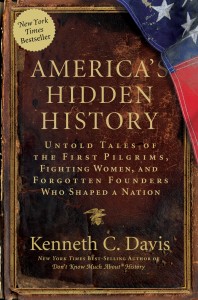
AS historical anniversaries go, April 10, 1967 may not seem like a date we all should remember. But that was the day that the U.S. Supreme Court heard oral arguments in the case Loving v. Virginia. On June 12, 1967, the Court issued its ruling in the case, striking down state laws prohibiting interracial marriage (“miscegenation”) in America.
Yes, a little over 40 years ago, Barack Obama’s parents could not have married legally in the home state of Washington, Jefferson and Madison.
The Court ruled that that anti-miscegenation laws, such as those in Virginia, violated the “Due Process Clause” (“No person shall be … deprived of life, liberty, or property, without due process of law….” ) and the Equal Protection Clause of the Fourteenth Amendment (“nor shall any State deprive any person of life, liberty, or property, without due process of law …”).
In the unanimous majority opinion, Chief Justice Earl Warren wrote:
“Marriage is one of the ‘basic civil rights of man,’ fundamental to our very existence and survival.”
The Loving case deserves discussion in light of the recent decisions to allow same sex marriage in Iowa (a court ruling) and Vermont (a legislative act). I have no doubt that this unresolved question is the greatest civil rights question facing America today. I am not a Constitutional lawyer, but I am certain that this landmark case will be invoked as the battle over same sex marriage continues.
I also have no doubt that the country will –perhaps ever so slowly—catch up with Massachusetts, Connecticut, Iowa and Vermont in permitting same sex marriage.
Change in American history is often slow. And it usually comes from the bottom up –not the top down. Whether it was abolition, civil rights, or even independence itself, when it comes to most of the great social upheavals of our past, the politicians and “leaders” have generally had to be dragged kicking and screaming in the direction of change. It may be glacially slow, but it will happen, in part because there is a generational change that will someday make the existing same sex marriage prohibitions on the books seem as antiquated –and despicable—as the now-unconstitutional bans on interracial marriage.
Before her death in 2008, Mildred Loving, the woman of African-American and Native American descent who brought the suit against Virginia, issued a statement on the 40th anniversary of the decision. She wrote:
“Surrounded as I am now by wonderful children and grandchildren, not a day goes by that I don’t think of Richard and our love, our right to marry, and how much it meant to me to have that freedom to marry the person precious to me, even if others thought he was the ‘wrong kind of person’ for me to marry. I believe all Americans, no matter their race, no matter their sex, no matter their sexual orientation, should have that same freedom to marry. Government has no business imposing some people’s religious beliefs over others. I am still not a political person, but I am proud that Richard’s and my name is on a court case that can help reinforce the love, the commitment, the fairness, and the family that so many people, black or white, young or old, gay or straight seek in life. I support the freedom to marry for all. That’s what Loving, and loving, are all about.”
I can’t say it any better than that.